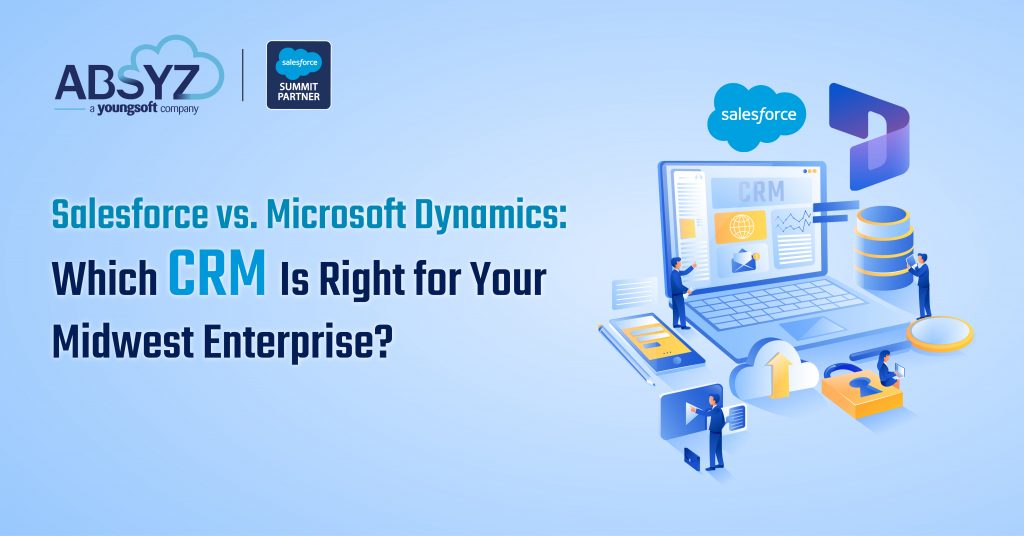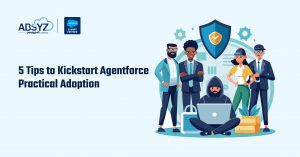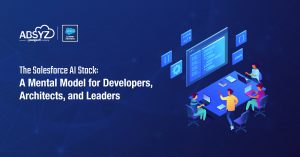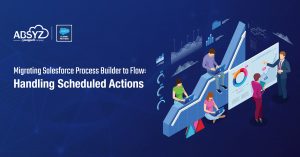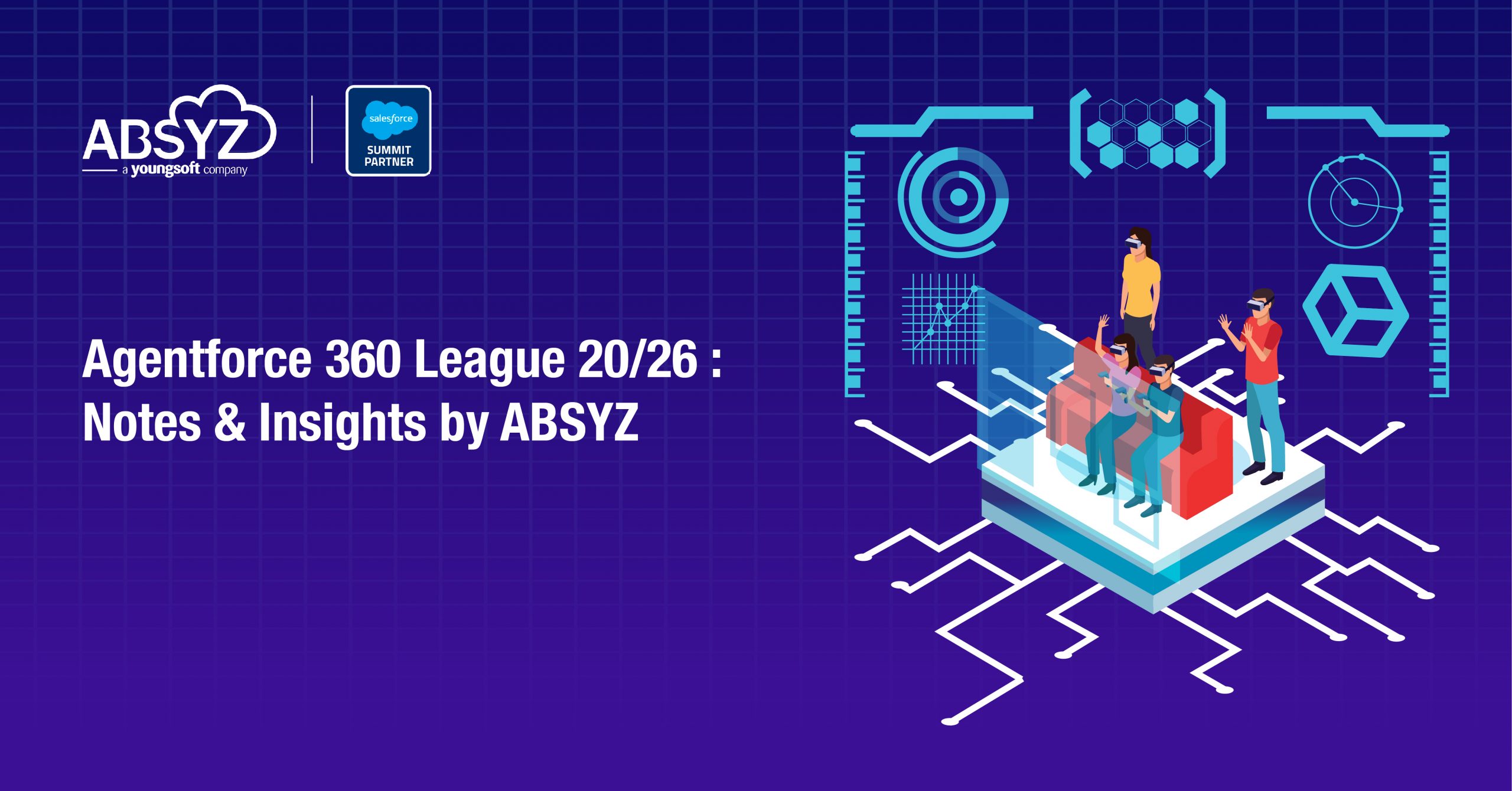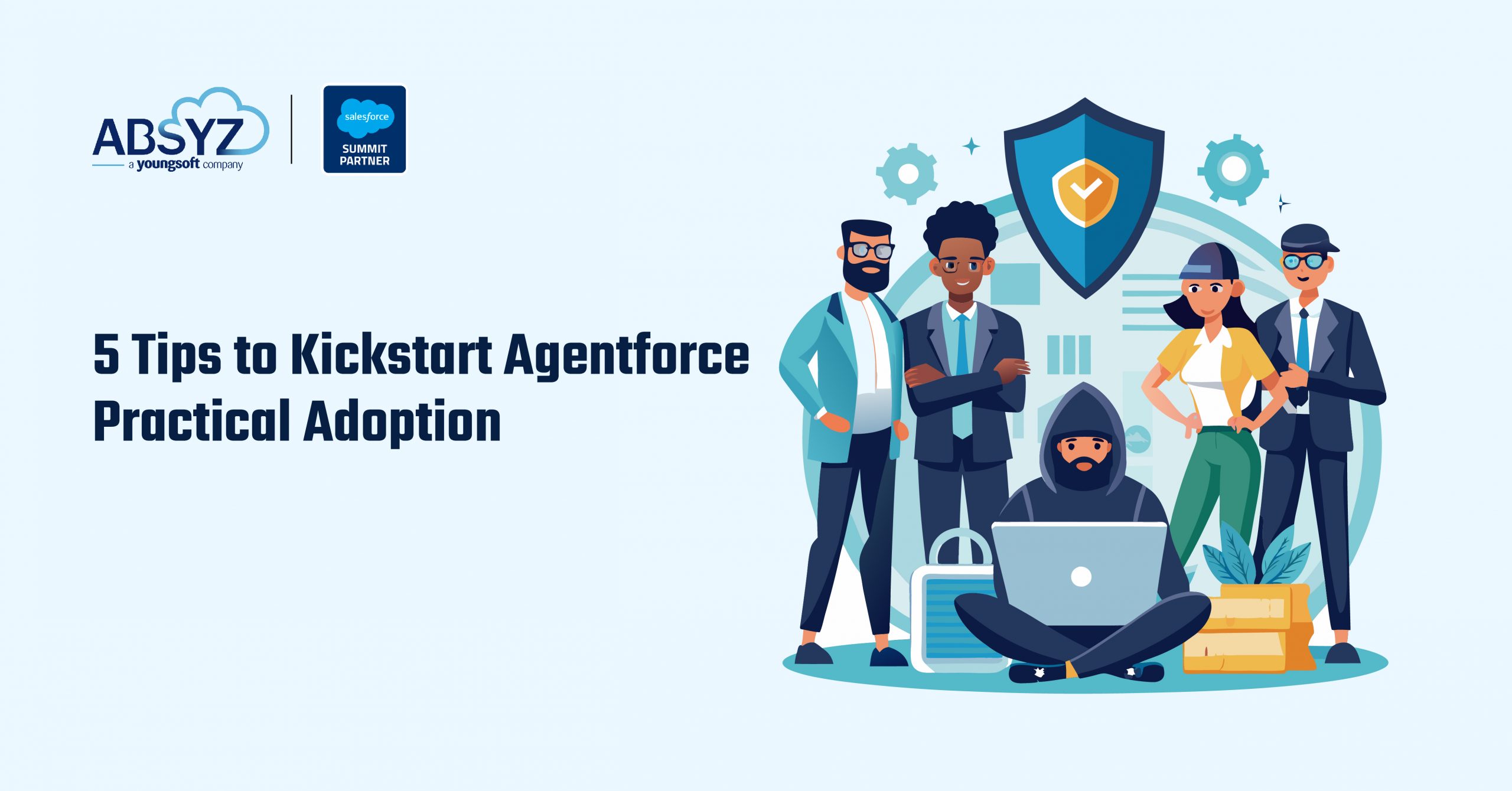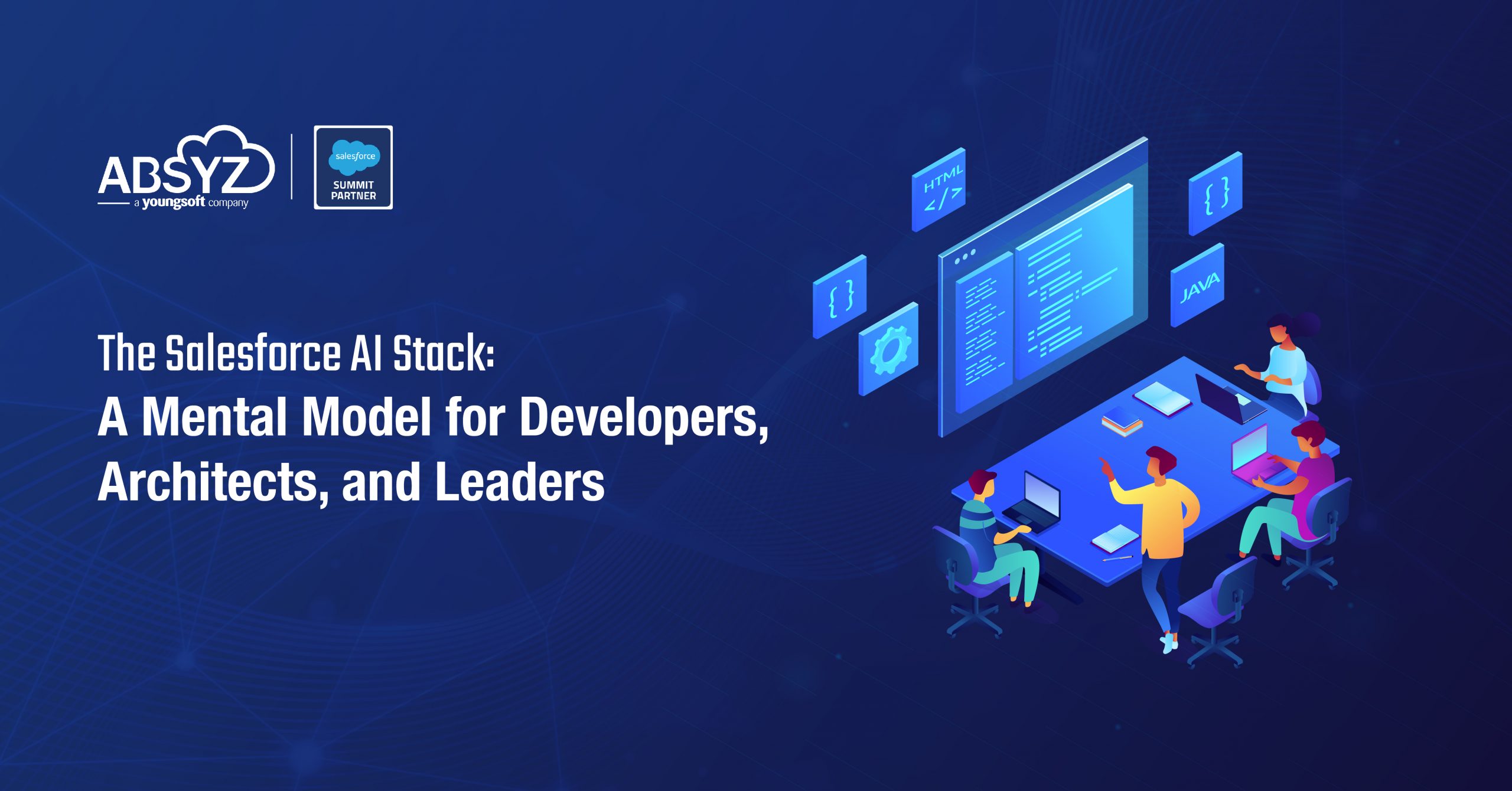Introduction
For enterprises in Michigan, Ohio, and Chicago, CRM decisions aren’t just about picking software — they’re about securing competitive advantage in industries like manufacturing, automotive, healthcare, logistics, and financial services.
Two names dominate the CRM discussion: Salesforce and Microsoft Dynamics 365. Both platforms promise smarter customer engagement, streamlined operations, and long-term scalability. But which one truly fits the Midwest business landscape?
1. Industry Fit: Local Relevance Matters
- Salesforce: Renowned for industry-specific clouds, Salesforce fits seamlessly into verticals like automotive (Manufacturing Cloud), healthcare (Health Cloud), and financial services (Financial Services Cloud). For Detroit’s auto industry and Chicago’s banking hubs, this specialization is a game-changer.
- Microsoft Dynamics 365: Strongest when paired with Microsoft ERP or productivity tools. Ohio-based manufacturers and insurers already running Microsoft platforms (like Dynamics 365 Finance or Teams) often find the integration smoother.
Takeaway: If you’re embedded in Microsoft, Dynamics reduces complexity. If industry-tailored solutions are critical, Salesforce leads the way.
2. Flexibility and Scalability
- Salesforce: Built for rapid growth, Salesforce offers unmatched scalability. With its AppExchange marketplace of over 7,000 pre-built apps, Midwest enterprises can quickly extend their functionality — a valuable asset for healthcare networks or logistics firms.
- Microsoft Dynamics 365: Provides modular deployment. Enterprises can start with one capability (like sales automation) and add more over time. This phased rollout approach resonates with cost-conscious mid-sized businesses in Ohio and Michigan.
3. User Experience and Adoption
- Salesforce: Intuitive, mobile-first design enables fast adoption. Sales teams in Chicago or service reps in Detroit’s manufacturing hubs can work efficiently from anywhere.
- Microsoft Dynamics 365: Familiarity is its strength. Deep integration with Outlook, Excel, and Teams reduces the learning curve for employees already familiar with Microsoft ecosystems.
Takeaway: Salesforce wins on UX innovation. Dynamics appeals to Microsoft-heavy workforces.
4. Cost and ROI — A CFO’s Lens
- Salesforce: Higher upfront investment, but strong ROI in supply chain optimization, predictive sales, and AI-driven insights. Chicago retailers and Michigan auto suppliers often see long-term payoffs.
- Microsoft Dynamics 365: More budget-friendly upfront, especially when leveraging existing Microsoft enterprise licenses. Ohio insurers often prefer Dynamics for its smoother licensing model and cost efficiency.
Takeaway: Salesforce is an investment for long-term ROI; Dynamics is pragmatic for upfront savings.
5. Innovation and AI
- Salesforce: With Einstein AI and the new Agentforce, Salesforce embeds AI into every function — from predictive lead scoring to generative service responses. Midwest healthcare providers, for instance, can enhance patient engagement with AI-driven insights.
- Microsoft Dynamics 365: Leverages Azure AI, enabling enterprises to build custom models. Ohio manufacturers already running predictive maintenance on Azure see strong synergy.
Takeaway: Salesforce offers packaged, ready-to-use AI. Dynamics provides flexibility for custom AI projects.
Salesforce vs. Microsoft Dynamics 365: A Midwest Enterprise Comparison
| Criteria | Salesforce | Microsoft Dynamics 365 |
|---|---|---|
| Industry Fit | Industry-specific clouds (Manufacturing, Healthcare, Financial). Strong in Midwest auto & retail. | Best for enterprises already on Microsoft ERP, Office 365, or Azure. Favored by Ohio manufacturers & insurers. |
| Flexibility & Scale | Highly scalable, rapid deployment, 7,000+ apps on AppExchange. | Modular, phased deployment. Ideal for mid-sized businesses that prefer a gradual rollout. |
| User Experience | Clean, mobile-first UI. Great for distributed sales/service teams. | Familiar UI with in Outlook, Excel, and Teams. Lower training needs. |
| Cost & ROI | Higher upfront cost, proven ROI in supply chain & CX. | Lower upfront cost, especially with Microsoft enterprise licenses. |
| AI & Innovation | Einstein AI + Agentforce for packaged, ready-to-use AI. | Azure AI for building custom models (predictive analytics, IoT integration). |
| Ecosystem Alignment | Cloud-first, cross-platform friendly, strong partner ecosystem. | Best fit for enterprises standardized on the Microsoft stack (ERP, Teams, Azure). |
Executive Summary
For Midwest enterprises, Salesforce delivers industry-specific depth, stronger packaged AI, and rapid scalability — ideal for growth-focused organizations. Microsoft Dynamics 365 offers cost efficiency and seamless integration with Microsoft tools, making it attractive for businesses already invested in the Microsoft ecosystem.
The best choice depends on your industry priorities, existing tech stack, and growth strategy.
The Bottom Line
In Michigan, Ohio, and Chicago — where industries balance tradition with transformation — choosing the right CRM is less about features and more about finding the right fit.
- Choose Salesforce if you want industry-tailored solutions, aggressive scalability, and ready-to-use AI.
- Choose Microsoft Dynamics 365 if you’re already invested in Microsoft and prefer a phased, cost-conscious rollout.
The right partner will ensure that either platform delivers a measurable ROI — because technology alone isn’t the differentiator; execution is.
- Choose Salesforce if you want industry-tailored solutions, aggressive scalability, and ready-to-use AI.
Author: Vignesh Rajagopal

